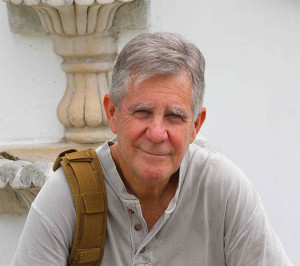Ask A Senior Analyst – Dr. Chip Beck
By WikiStrat
After serving as a “soldier, sailor, spy and artist” for many years, Dr. Chip Beck retired from the CIA, U.S. Navy and U.S. State Department in 1993, 1996 and 2010, respectively. Today, he works as a writer, editor, freelance contractor and continues with his art. He has degrees in International Relations, Middle Eastern Studies, Organizational Leadership and Conflict Resolution.
Carlos A. Puentes: Given the confluence of events such as U.S. policies on immigration and pressure to reform on Cuban trade, wouldn’t a first step to both be the liberalization of trade policies and update the Cuban immigration status as defined by the Cuban Adjustment Act of 1966? Reduction/normalization on barriers implies a change in relationship vis-à-vis nations and suggests fewer belligerences and as such implies a less hostile environment in Cuba toward its own citizens and a lack of need to open U.S. borders, thus a convergence with stricter immigration controls or entry opportunity in the US.
Answer: If you always do what you’ve always done, you’ll always get what you already have — the status quo.
In the case of U.S. relations with Cuba, the status quo is not working for either side; it is an unnecessary relic of the Cold War that should (in this writer’s opinion and direct experience with the island) be scrapped.
Fifty-five years of a unilateral trade and travel embargo has kept U.S. influence off the island more than it has isolated Cuba. It should be clear to all but the most obstinate that America’s outdated means and methods did not and will not achieve America’s goals and objectives of a freer or more democratic Cuba.
The U.S. does not need to change its goals and objectives, but the means and methods employed for five decades are counterproductive and need to be jettisoned for positive engagement that works.
During the Cold War, this writer worked against or confronted Cuban Expeditionary Forces or operatives on three continents (Indochina, Africa, Central America). Some of those situations resulted in direct contact under less than diplomatic circumstances.
Subsequently, between 1998-2001, I made five (legal) trips to Cuba to seek information on Americans missing in various geographic areas during the Cold War. Because I had once demonstrated my humanity to some beleaguered Cuban soldiers in a time of war, Havana was open to assisting me — and they did so by opening up old classified files, letting me read the original reports in Spanish, and giving me access to former covert operators for interviews that I was allowed to record on film.
Although I was by then retired (prior to September 11, 2001, after which time I came back into government) and entered Cuba as a freelance journalist, the Cubans knew my background as a U.S. Navy Commander and former intelligence officer. Obviously Cuban intelligence (DGI) was curious as to why I was asking to enter their country. I told them up front that I was (a) not defecting, (b) not spying on them, but (c) I wanted access to classified information that I believed Havana could share without harming Cuba’s own national interests.
Feature continues here: Retired CIA Officer Gained Cuban Help

Amazing that with that all this government bureaucratic expertise, this Phil Agee disciple omits mentioning that the cornerstone of US-Cuba relations since 1962 has been the issue of confiscated American property on the island, with an outstanding debt of $17 billion. It is the largest seizure of US property in history. Beck apparently wants the US to forgive and forget the debt. He needs to get a reality check. China and Vietnam made payment plans to the US for property expropriations as did the Castro dynasty with Spain in 1986. Jimmy Carter asked Cuba in May 2002 to establish a blue ribbon panel to study the debt issue but he was rebuked by the castronoids who claim that the US owes them $67 billion as a result of the embargo.
What did the Castro Government wish to gain in return?